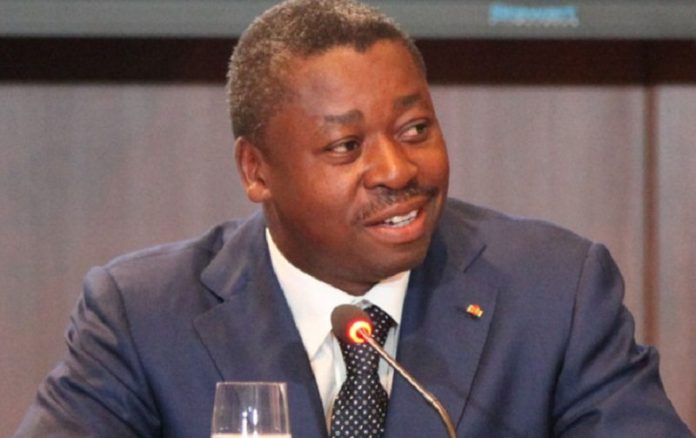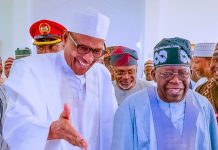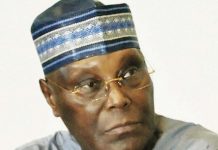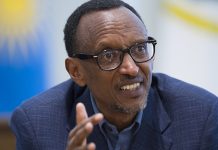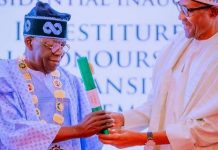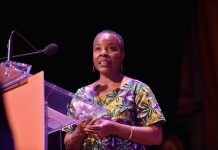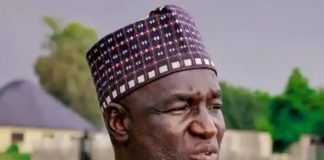Analysis by Pat Chukwuelue
Africa used to be known for popular kingdoms and dynasties run by equally popular and influential kings who insisted in keeping the reins of power within their families. The situation may have changed in many countries of Africa but the continent is notorious for breeding political dictators. On the other hand, there are places where the headship of the modern nation–state still runs in the family. More specifically, there are African nations where members of one family have held on to political leadership for decades – the scenario where a Head of state grooms his son in order to transfer power to him. In this category, mention must be made of the more notorious ones –Gabon, Togo, Congo DR, and Equatorial Guinea. But let us consider the sit-tight rulers first.
The spectacle of dictatorship which dots African countries such as Algeria, Cameroon, Chad, Eritrea, Congo PR, Uganda and Zimbabwe, to mention a few, has been a major source of concern to analysts of democratic principles and politics. In these countries, the political heads introduce all sorts of strategy to dribble political opponents, members of opposition groups and vocal civil society watchers.
Ordinarily, the idea of one leader holding on to executive power for decades can either be for the good or the bad of the country concerned. For instance, in Singapore, Lee Kuan Yew held sway for 31 years but he succeeded in transforming what used to be a port city into a global financial hub. When he passed on in March 2015, at the age of 91, ordinary Singaporeans poured into the streets to salute the achievements of their national hero. There is hardly anywhere in Africa where one can one say the same thing.
Dictators in African politics are purely colourless and selfish. The only reason they cling on to political power is to continue milking their countries dry. If the scepter of dictatorship in the political scene in Africa were to be an asset, Africans should by now have been shouting Hosanna at the roof tops. We have three members of the Class of 1979 – leaders who took office by crooked means in 1979 and have remained in office since then – clocking all of 38 years in power. These include Nguema Mbasogo of Equatorial Guinea, Denis Nguesso of Congo PR and Eduardo Dos Santos of Angola, who has just stepped down.
Then we have the Class of the 1980s – where we place Robert Mugabe of Zimbabwe (1980), Paul Biya of Cameroon (1982) and Yoweri Museveni of Uganda (1986). There is also the Class of the 1990s – for leaders such as Idris Deby of Chad (1991); Issayas Afewerki of Eritrea (1993) and Abdel Bouteflika of Algeria (1999). This class used to have another member, Yahya Jammeh of The Gambia, who was forced out of office last year. Now, what this means is that the latest arrival on the Sit-tight Desk in Africa has been in power for 18 years. These rulers have been hoodwinking their so-called parliaments to change the term limits in their national constitutions to enable them extend their tenures.
The situation in Angola used to be precarious. The long-serving President Dos Santos has cleverly succeeded in donning two caps – that of a dictator and that of the head of Dos Santos dynasty. As virtually a leader for life, he willed lucrative state agencies such as petroleum and gas to his children. His daughter, Isabella, still heads the state-owned oil company, Sonangol. She is reportedly worth $3.2 billion, which would make her Africa’s richest woman. Dos Santos’ son controls the country’s massive sovereign wealth fund. Forbes Fortune Magazine credits Dos Santos and his daughter, Isabella, as the richest political father/daughter duo in the world.
Well, Eduardo dos Santos has handed over power to João Lourenço, who had been his Defense Minister. The question is whether the former strongman will not be calling the shots from outside the corridors of power and whether the change in leadership will usher in more transparent governance in Angola.
For another member of the Class of 1979, President Nguema Mbasogo in Equatorial Guinea, the situation is different. It can simply be summed up thus – the longer the merrier. He has just begun a new seven-year term, with his eldest son as his appointed vice president.
Copying from his Angolan classmate, Nguema Mbasogohas handed out key government positions to family members, who have amassed enormous wealth from the country’s resources. Reports say that the president is grooming his eldest son, known as Teodorin, to succeed him.
Many Equatoguineans tend to shiver at the thought that the young Teodorin could one day step into his father’s shoes and become their national leader. They see him as a painful symbol of the corruption that has kept them and indeed their country wallowing in abject poverty despite the abundant natural endowment.
The country has endured more than forty years of dictatorship. Definitely, whenever the transition to a new president, an outsider occurs, the people of Equatorial Guinea will have great cause to celebrate. The country has only known two heads of state—the current president and his uncle, whom Nguema Mbasogo over threw in 1979. The years of oil wealth have only put millions of dollars in the pockets of members of the Mbasogo family at the expense of the country and its people. It is clear that a dynasty is seriously being crafted in Equatorial Guinea.
And talking about father-son political transition in Africa, let us now bring in Congo DR, Gabon and Togo. What happened in Congo DR is quite clear. President Laurent Kabila who seized power without any election put his son, Joseph, at the head of the country’s military command. When he was assassinated in office, his son quickly stepped into his father’s place and has remained president till today.
Gabon used to be notorious for having the longest-serving dictator in Africa. Omar Bongo had been in power for over forty years. But at his death, there was no sigh of relief. Yes, the vacant presidential seat seemed to have been permanently allocated to the Bongo family. Omar Bongo’s son, Ali Bongo, took the baton, setting up the Bongo dynasty. It is ditto for Togo. Former President Gnassingbe Eyadema, who held sway for close to four decades in Togo groomed his son, Faure, to succeed him at his death, thus keeping the Eyadema dynasty thriving in the country.
It is particularly sad that the countries listed here do not have anything to show for the long years that dictators have held sway on the political stage. Rather, most of them have continued to be classified among the poorest countries in the world. No wonder, the founders of representative democracy – accompanied with the rule of law and term limits believe that this is the way to entrench political accountability, peace and progress. One hopes that concerned African leaders will wake up and toe the line.






